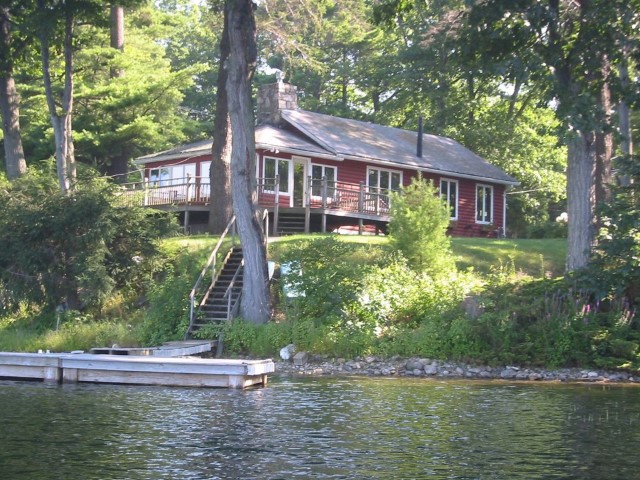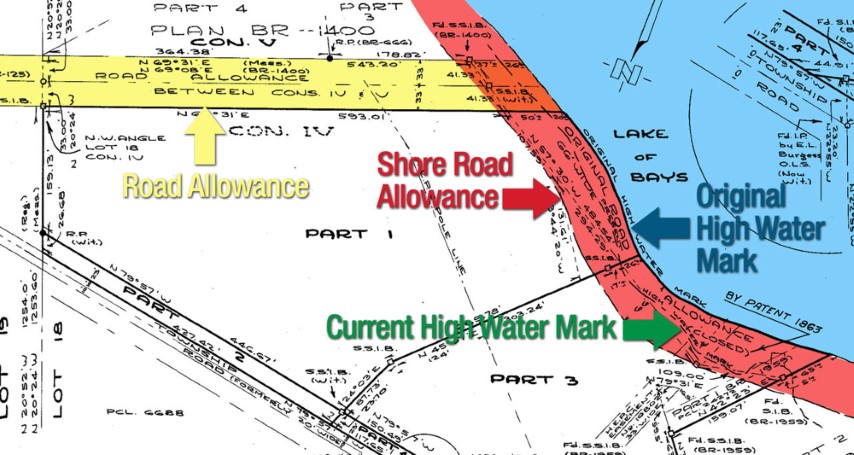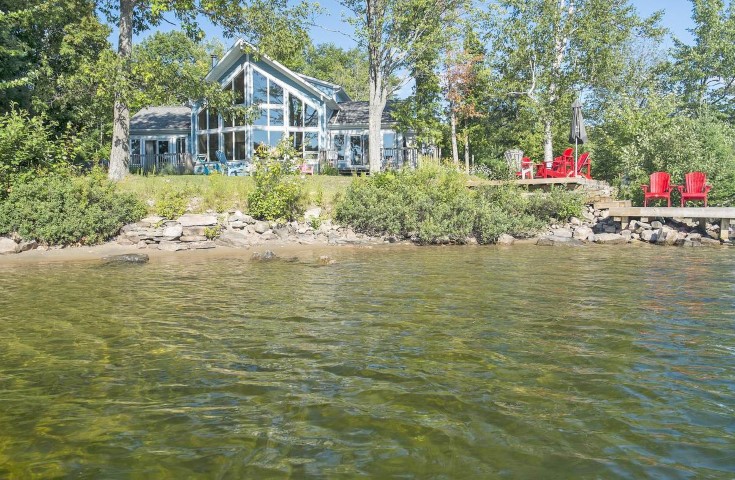July 15th 2019
 Summertime features a rare opportunity for Canadians to find ways to cool off. For some, this means making full use of lakefront properties. Yet shoreline ownership can be a muddy topic, so prospective owners should know their waterfront rights before getting into any kind of suit this year.
Summertime features a rare opportunity for Canadians to find ways to cool off. For some, this means making full use of lakefront properties. Yet shoreline ownership can be a muddy topic, so prospective owners should know their waterfront rights before getting into any kind of suit this year.
Most shorelines in Ontario originally reserved a 66-foot portion of land extending from the high watermark inland. This stretch of land is called the Shore Road Allowance (“SRA”), and its ownership was transferred to governing municipalities at a time when society depended more heavily on public and commercial transportation by water. As a result, the municipality still owns that portion of the SRA, unless the adjacent landowner has acquired title extending to the shore. Not owning title to the shore has two main consequences for property owners. First, a structure cannot be built upon land still owned by the municipality. This means structures erected without a license on an open SRA are illegal, and municipal building departments may demand proof of purchase of the SRA upon repair or renovation of these such structures. The second main consequence is that the public remains free to use the land subject to the SRA, unless the municipality has enacted by-laws to the contrary. For some  owners, this could mean dealing with anything from beachgoers to ATVs during their summer escape.
owners, this could mean dealing with anything from beachgoers to ATVs during their summer escape.
While it is generally possible to purchase title to the SRA from the relevant municipality, whether it is advisable in any situation depends on the circumstances. First, the deed to the property should be reviewed to determine whether the land is owned to the shoreline. If the deed still reflects that title is subject to the 66-foot allowance, then the SRA likely has not been acquired at any point by the abutting landowner. The SRA is technically a ‘road’ allowance, so a public process is involved to close the road. Fees for the application to purchase the SRA will differ depending on the municipality and lot size. In any event, prospective purchasers of waterfront property should consider ordering an updated building survey and make any offer for purchase conditional on their satisfaction with what the survey reveals. The survey may disclose that the existing cottage or summer house has been built upon an unowned SRA. Other times, a survey might reveal that the SRA has been completely submerged in water over time, raising the question of whether the SRA truly impacts the current use and enjoyment of the land. Professional advice should be sought to determine the best path forward with respect to these questions.
 Waterfront properties and permitted uses are affected in various other ways. Soil may accumulate (called ‘accretion’) increasing the shoreline, or the shore may erode from the elements and be washed away. An updated survey will better reveal these changes and indicate the waterfront zoning setback needed for structures on the property. In some instances, the structure, such as a boathouse, has been built upon Crown land without the land having been purchased or leased from the Ministry of Natural Resources (MNR). Typically, a waterfront owner can’t erect any structure beyond the high-water mark of the shore without a permit from the MNR. Regulations designed to protect wildlife impact other uses, such as the installation of ‘cribs’ for docks. For waterfront owner’s who face soil erosion, obtaining a permit from the MNR to take measures to prevent further erosion or improve their shoreline may be possible.
Waterfront properties and permitted uses are affected in various other ways. Soil may accumulate (called ‘accretion’) increasing the shoreline, or the shore may erode from the elements and be washed away. An updated survey will better reveal these changes and indicate the waterfront zoning setback needed for structures on the property. In some instances, the structure, such as a boathouse, has been built upon Crown land without the land having been purchased or leased from the Ministry of Natural Resources (MNR). Typically, a waterfront owner can’t erect any structure beyond the high-water mark of the shore without a permit from the MNR. Regulations designed to protect wildlife impact other uses, such as the installation of ‘cribs’ for docks. For waterfront owner’s who face soil erosion, obtaining a permit from the MNR to take measures to prevent further erosion or improve their shoreline may be possible.
A waterfront property can be a rewarding investment. However, it comes with a unique set of challenges. Many of these challenges can be anticipated or overcome prior to a new purchase. Do not hesitate to contact your trusted real estate professional if you think this investment is right for you.
Michael Liddiard, JD | Liddiard Law Professional Corporation | michael@liddiardlaw.ca